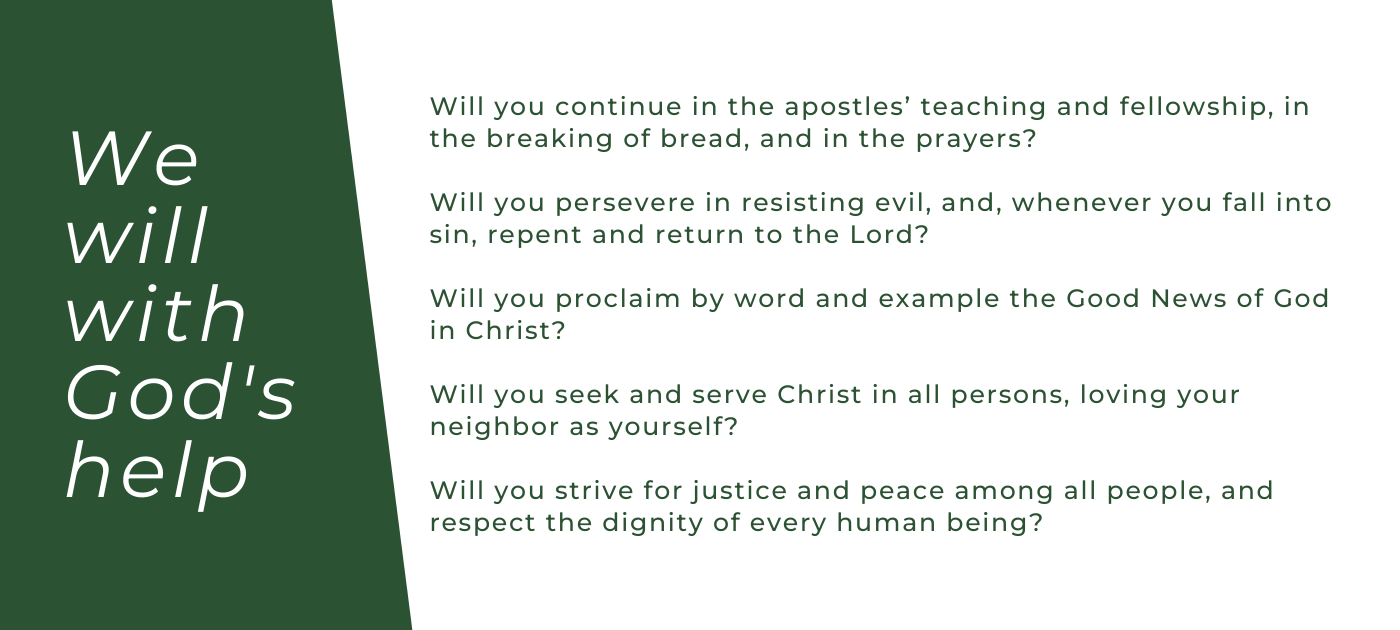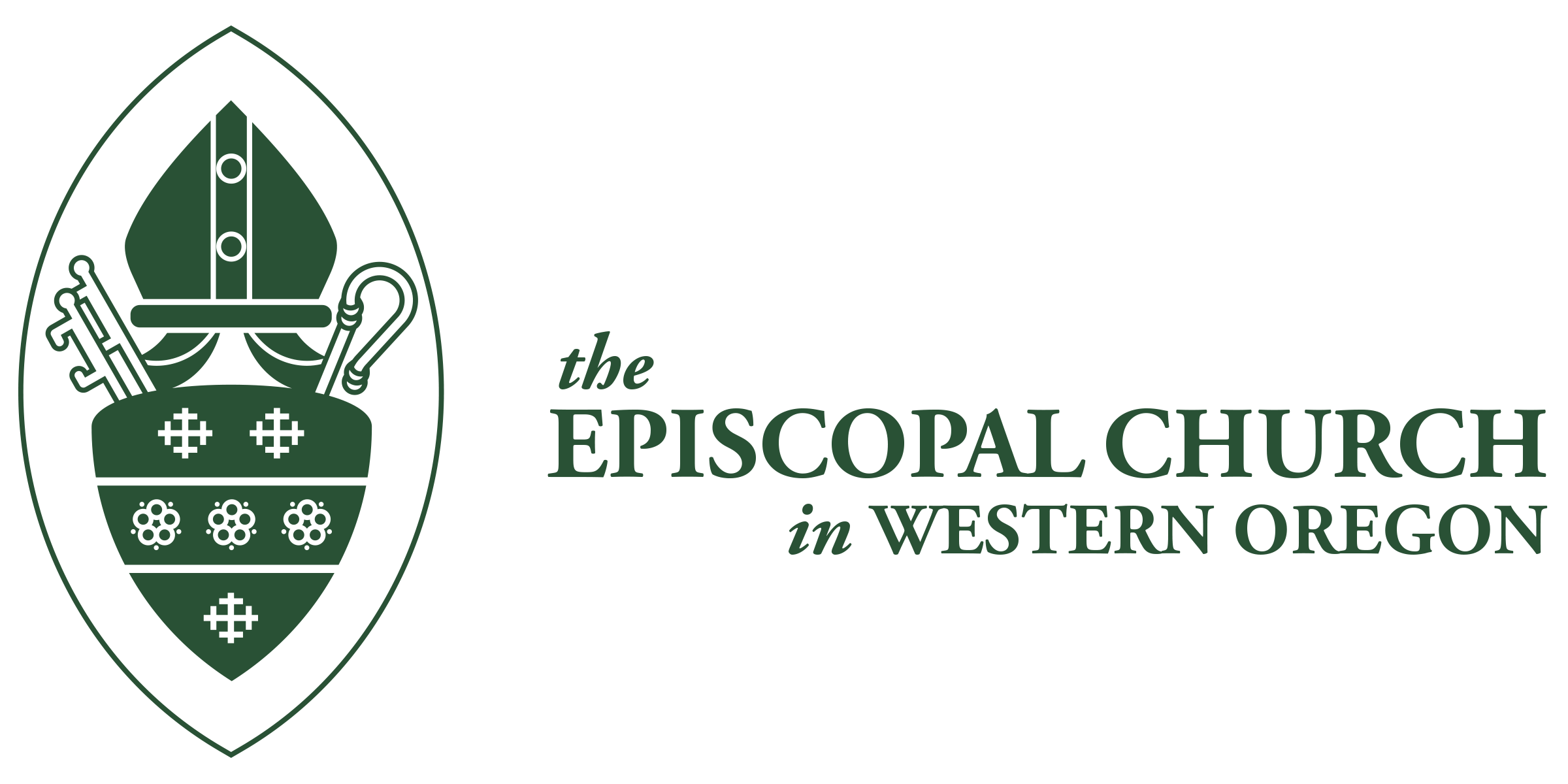Our Beliefs
You were fearfully and wonderfully made by a God who loves you and knows you deeply.
God is with us – all of us. As Episcopalians, this reminder is woven throughout our worship services and compels us to lead lives of faithful action in our communities and worlds, seeking and serving the image of God that is found in every person.
We believe in following the teachings of Jesus Christ, whose life, death, and resurrection saved the world.
As members of The Episcopal Church, our worship, teaching, and practice are grounded in the Holy Scriptures and the liturgies found in the Book of Common Prayer (BCP). The focal point of our worship services is the Holy Eucharist (also called Mass, Communion, or the Lord’s Table). In this Sacrament, we come together as the family of God to receive the bread and wine, acknowledging our unity with God and each other, and anchoring ourselves in the holy love that strengthens and nourishes us.
The Episcopal Church has a legacy of inclusion, aspiring to tell and exemplify God’s love for every human being. Laypeople and clergy cooperate as leaders at all levels of our church. Leadership is a gift from God, and can be expressed by all people in our church, regardless of sexual identity or orientation.
The Mission of
the Church
What is the mission of the Church?
The mission of the Church is to restore all people to unity with God and each other in Christ.
How does the Church pursue its mission?
The Church pursues its mission as it prays and worships, proclaims the Gospel, and promotes justice, peace, and love.
Through whom does the Church carry out its mission?
The church carries out its mission through the ministry of all its members.
Book of Common Prayer, p. 855
The Holy Bible
The Holy Bible, or the Scriptures, including the Old and New Testament, were written under the inspiration of the Holy Spirit.
The Bible is of extraordinary central importance to Episcopal worship; during a Sunday morning service, the faith community will usually hear at least three readings from Scripture. Much of the liturgy from The Book of Common Prayer is drawn directly from Biblical texts. According to the Episcopal Catechism, “We understand the meaning of the Bible by the help of the Holy Spirit, who guides the Church in the true interpretation of the Scriptures” (p. 853-4)
There are several translations of the Bible authorized for use. That list is available on the Episcopal Church’s website.
The Book of Common Prayer
The Book of Common Prayer is a devotional and teaching resource for individuals and faith communities and the primary symbol
of our unity. As Armentrout and Slocum note in their Episcopal Dictionary of the Church, “Anglican liturgical piety
has been rooted in the Prayer Book tradition since the publication of the first English Prayer Book in 1549.”
We, who are many and diverse, come together in Christ through our worship and our common prayer. The Book of Common Prayer, most recently revised in 1979, contains the calendar of the Christian Year, our approach to the sacredness of time, prayers for use throughout the day, the sacraments and of our faith, rites marking the important stages of our life, and much more.
The Baptismal Covenant

The Sacraments
The Anglican tradition, of which we are a part, recognizes sacraments as “outward and visible signs of inward and spiritual grace given by Christ as sure and certain means by which we receive that grace.” The Book of Common Prayer, p. 857. Holy Baptism and Holy Eucharist (or Holy Communion) are the two great sacraments given by Christ to his Church.
In the case of Baptism, the outward and visible sign is water, in which the person is baptized in the Name of the Father, and of the Son, and of the Holy Spirit; the inward and spiritual grace is union with Christ in his death and resurrection, birth into God’s family the Church, forgiveness of sins, and new life in the Holy Spirit. In the case of the Eucharist, the outward and visible sign is bread and wine, given and received according to Christ’s command. The inward and spiritual grace is the Body and Blood of Christ given to his people, and received by faith.
In addition to these two, there are other spiritual markers in our journey of faith that can serve as means of grace.
These include:
-
-
-
- Confirmation: the adult affirmation of our baptismal vows
- Reconciliation of a Penitent: private confession
- Matrimony: Christian marriage
- Ordination to Holy Orders: the diaconate, priesthood, or episcopacy
- Unction: laying on of hands and anointing those who are sick with holy oil
-
-
